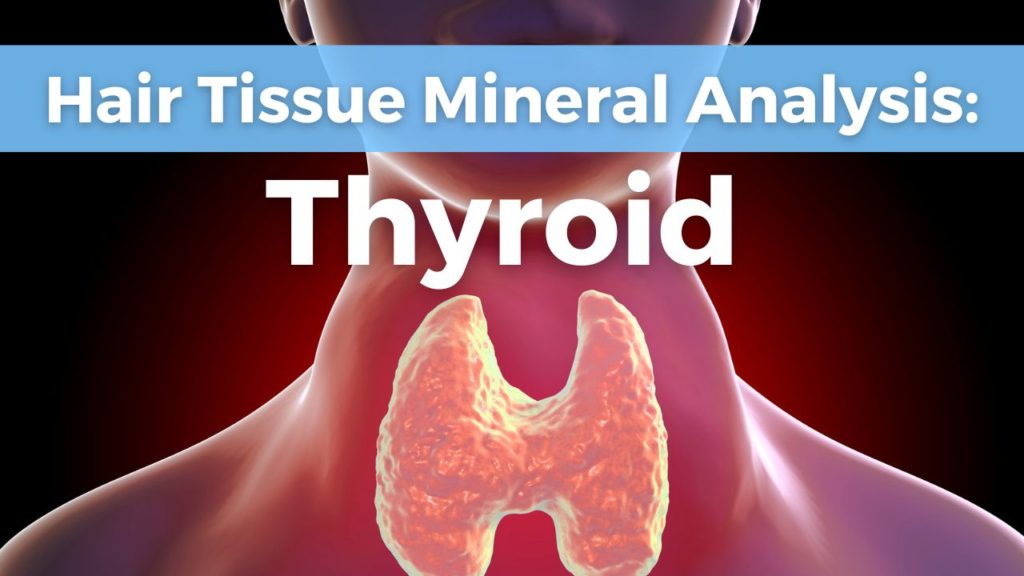Thyroid health is crucial for maintaining overall well-being, yet thyroid dysfunction often goes undiagnosed due to subtle and varied symptoms.
In my latest video, “Hidden Clues to Thyroid Dysfunction,” I delve into the often-overlooked signs that your thyroid might not be functioning optimally.
Understanding these hidden clues can empower you to seek the right treatment and reclaim your health.
In my latest video here, I provide a detailed overview of thyroid dysfunction, share real-life stories, and offer practical tips for maintaining thyroid health.
What is Thyroid Dysfunction?
The thyroid gland, located at the base of your neck, produces hormones that regulate metabolism, energy levels, and many other vital functions. Thyroid dysfunction occurs when the gland produces too much (hyperthyroidism) or too little (hypothyroidism) thyroid hormone. These imbalances can significantly impact your health.
Discovering Thyroid Dysfunction with Hair Tissue Mineral Analysis
A powerful tool for uncovering thyroid imbalances is Hair Tissue Mineral Analysis (HTMA). This non-invasive test measures the levels of various minerals and heavy metals in your hair, providing valuable insights into your thyroid health. By analyzing these mineral levels, HTMA can help determine if your thyroid is in a hypo or hyperthyroid state.
Hidden Clues to Thyroid Dysfunction
1. Unexplained Weight Changes: Sudden weight gain or loss, despite no significant changes in diet or exercise, can be a sign of thyroid dysfunction. HTMA can reveal imbalances in minerals like calcium and potassium that contribute to these weight fluctuations.
2. Fatigue and Low Energy: Persistent fatigue and low energy levels, even after a good night’s sleep, can indicate an underactive thyroid. HTMA can identify deficiencies in magnesium and potassium, which are crucial for energy production and thyroid function.
3. Mood Swings and Depression: Thyroid hormones play a crucial role in regulating mood. HTMA can help identify low selenium or iodine levels that may contribute to depression or anxiety.
4. Hair and Skin Changes: Thyroid dysfunction can affect the health of your hair and skin. High calcium and low magnesium levels, detectable through HTMA, can cause dry skin and hair thinning.
5. Sensitivity to Temperature: Feeling unusually cold or hot can be a sign of thyroid imbalance. HTMA can uncover mineral imbalances like high calcium or low iodine that affect temperature regulation.
6. Digestive Issues: Thyroid hormones influence digestive function. HTMA can reveal imbalances in essential minerals that contribute to constipation (common in hypothyroidism) or diarrhea (common in hyperthyroidism).
7. Irregular Menstrual Cycles: For women, thyroid dysfunction can affect menstrual cycles. HTMA can detect deficiencies in selenium and iodine that impact hormonal balance and menstrual regularity.
8. Cognitive Problems: Difficulty concentrating, memory issues, and brain fog can be symptoms of thyroid dysfunction. HTMA can highlight deficiencies in magnesium and selenium that affect cognitive function.
Potential Mineral Recommendations to Balance the Thyroid
1. Optimize Selenium and Iodine Intake: Ensure adequate intake of selenium (found in Brazil nuts, seafood, and eggs) and iodine (found in seaweed, dairy, and iodized salt).
2. Balance Calcium and Magnesium Levels: Incorporate foods rich in calcium (dairy, leafy greens) and magnesium (nuts, seeds, whole grains) to maintain a healthy ratio.
3. Increase Potassium-Rich Foods: Consume potassium-rich foods like bananas, oranges, and spinach to support thyroid hormone transport.
4. Avoid Heavy Metal Exposure: Limit exposure to heavy metals, particularly mercury, by avoiding high-mercury fish and using natural products.
5. Consider Supplements: In some cases, high-quality supplements may be necessary to correct imbalances. Always consult a healthcare professional before starting new supplements.
Taking Action: What to Do If You Suspect Thyroid Dysfunction
1. Consult a Healthcare Professional: If you recognize any of these hidden clues in your health, it’s essential to consult with a healthcare professional. They can perform a thorough evaluation, including blood tests and HTMA, to assess your thyroid function.
2. Get a Comprehensive Thyroid Panel: A comprehensive thyroid panel includes tests for TSH, free T3, free T4, and thyroid antibodies, alongside HTMA for a complete picture of thyroid health.
3. Consider Lifestyle Adjustments: Certain lifestyle changes can support thyroid health. Eating a balanced diet rich in essential nutrients, managing stress, and getting regular exercise can help maintain optimal thyroid function.
4. Explore Natural Remedies: In addition to conventional treatments, some natural remedies and supplements may support thyroid health. However, it’s important to consult with a healthcare provider before starting any new supplements.
Empower yourself with knowledge and take the first step towards optimal thyroid health today!










